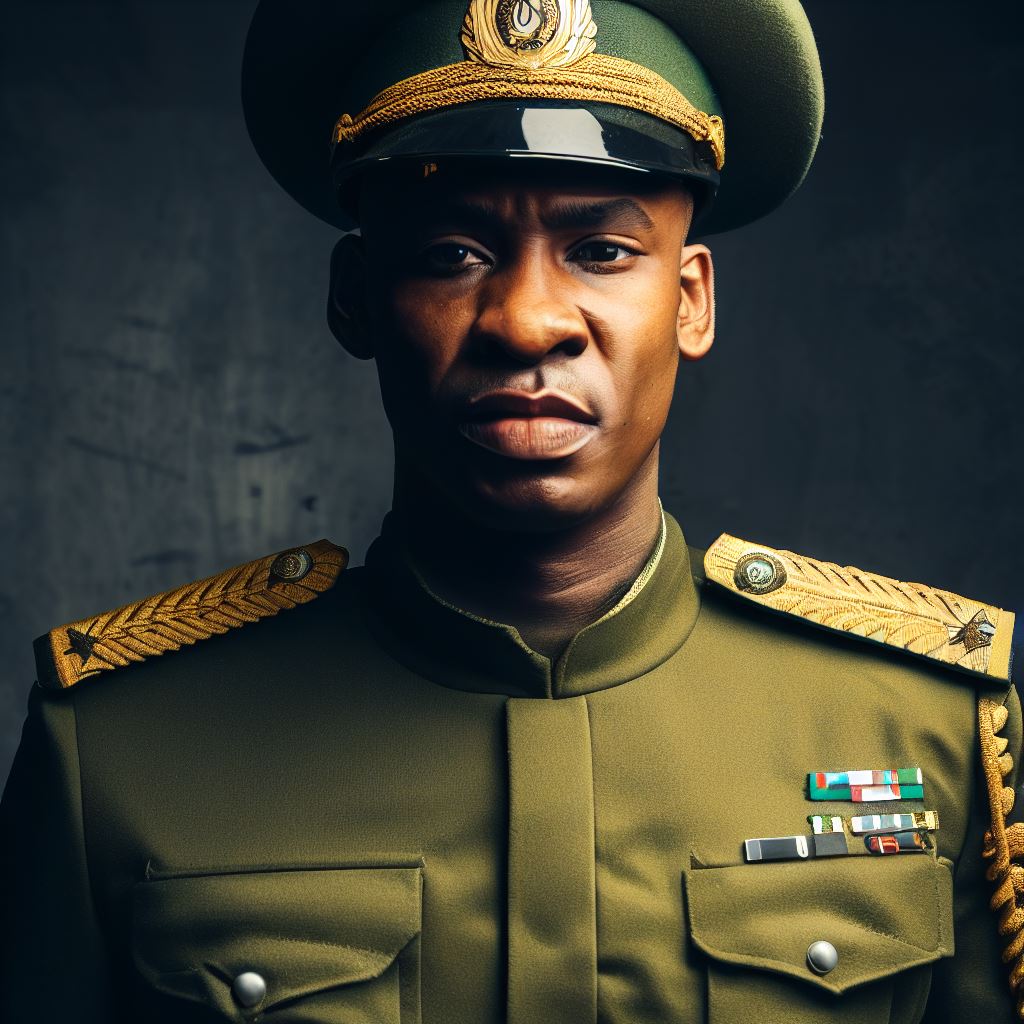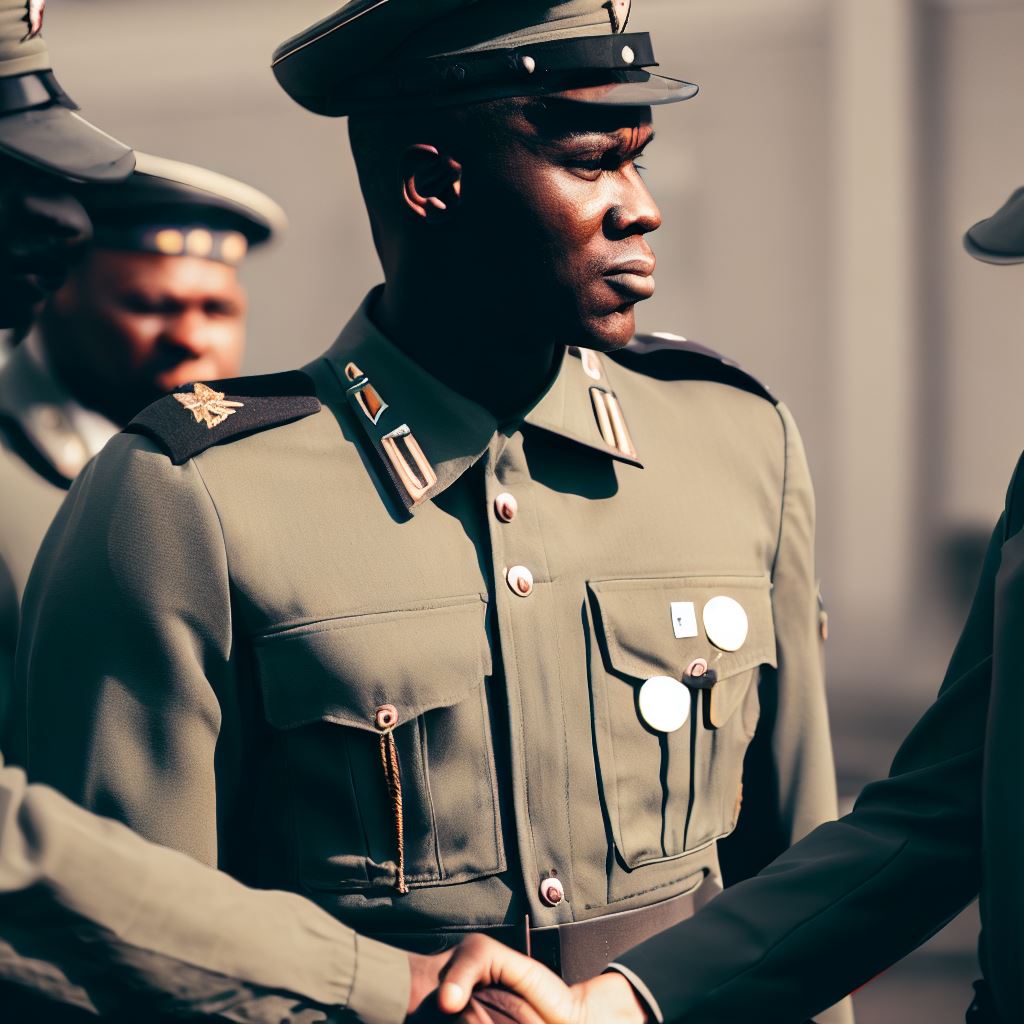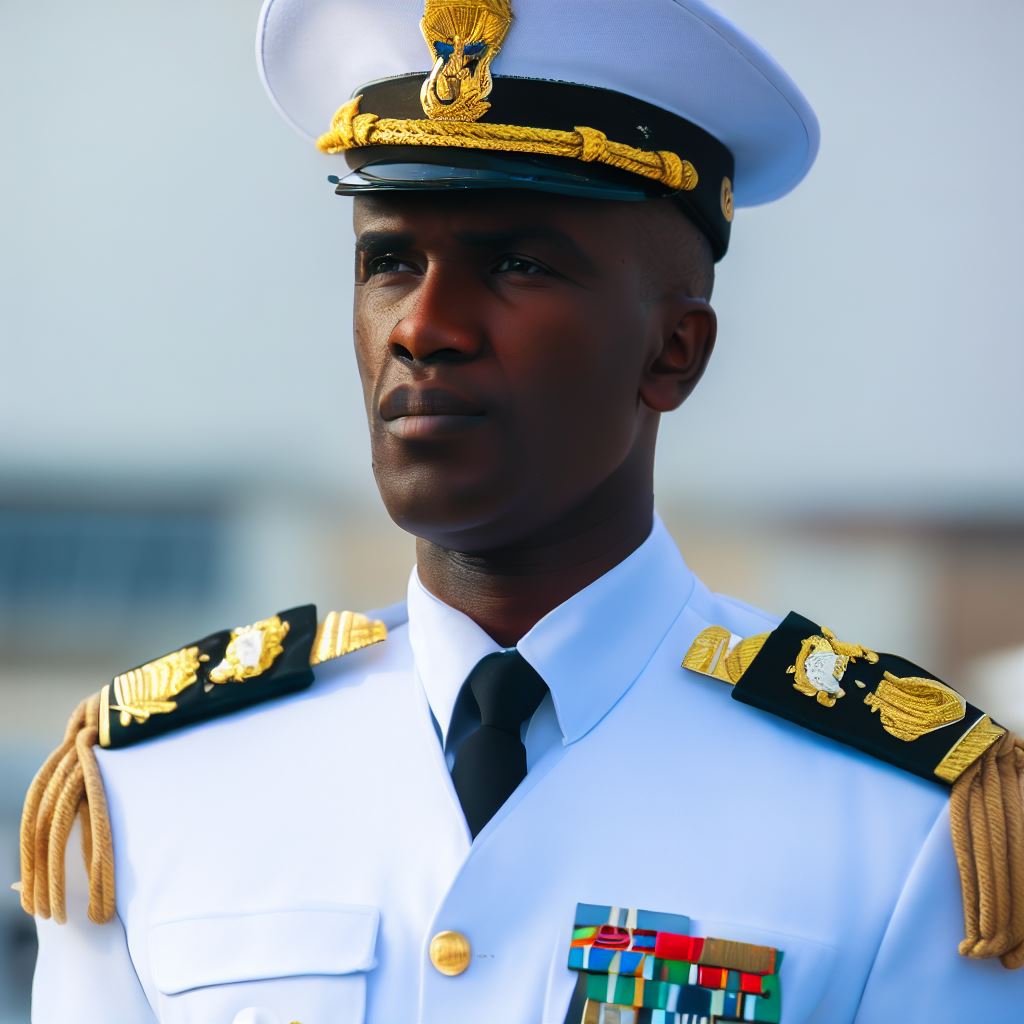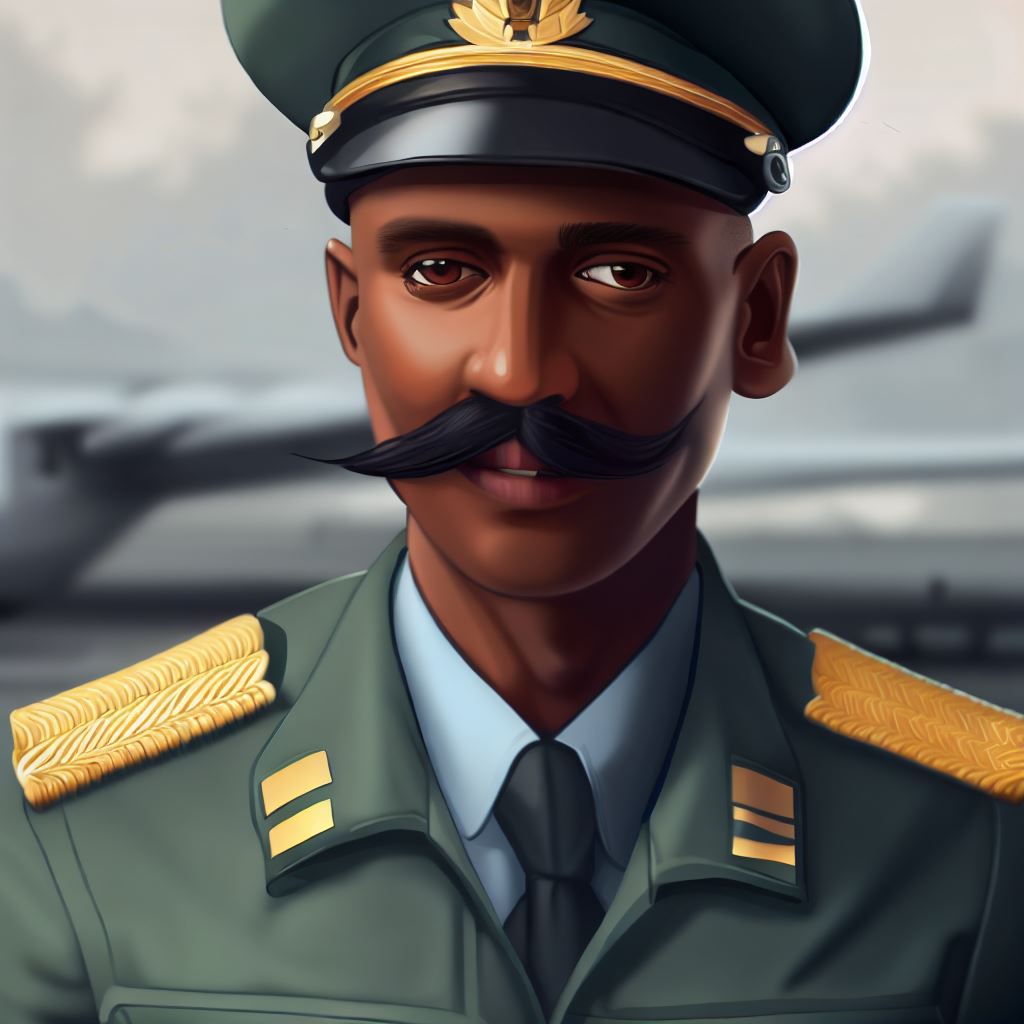Introduction
Nigeria Military Academies serve as institutions for training future military officers in Nigeria.
The purpose of this blog post is to provide a comprehensive guide on training at these academies, highlighting the process and benefits to prospective candidates
Overview of Nigeria Military Academies
Nigeria Military Academies have played a crucial role in shaping the country’s military forces.
These institutions offer exceptional military training, equipping individuals with the skills needed to defend their nation. Here is an overview of Nigeria Military Academies:
Historical background
In 1964, Nigeria established the Nigerian Defence Academy (NDA) in Kaduna, marking the inception of its military academies, driven by the quest for independence.
This institution aimed to provide quality military education to young Nigerians.
Importance of military training
Military training is of utmost importance in Nigeria, considering the country’s security challenges.
These academies train soldiers rigorously, preparing them both physically and mentally to confront any threat effectively. It enhances discipline, strategic thinking, teamwork, and leadership skills.
Key institutions in Nigeria Military Academies
Nigerian Defence Academy (NDA)
The Nigerian Defence Academy is the premier military institution in Nigeria. It offers undergraduate programs in disciplines like the sciences, engineering, and humanities to military cadets.
The NDA focuses on developing future military officers through rigorous academic and military training.
Nigerian Navy Secondary School, Port Harcourt
Located in Port Harcourt, the Nigerian Navy Secondary School is a crucial institution within the Nigerian Military Academies.
It provides quality secondary education to children of military personnel, incorporating military discipline into their everyday lives.
Nigerian Army School of Infantry (NASI), Jaji
The Nigerian Army School of Infantry, situated in Jaji, is responsible for training infantry soldiers. This institution focuses on combat skills, marksmanship, tactical operations, and physical fitness.
NASI plays a significant role in preparing soldiers for the challenges they may face on the battlefield.
Nigerian Air Force Institute of Technology (AFIT), Kaduna
The Nigerian Air Force Institute of Technology, based in Kaduna, is a key institution that offers technical and engineering programs to members of the Nigerian Air Force.
AFIT specializes in aeronautical and aerospace engineering, avionics, telecommunications, and other critical areas that support air operations.
Nigerian Army College of Logistics (NACOL), Lagos
The Nigerian Army College of Logistics is located in Lagos and is responsible for providing logistics training to Nigerian Army personnel.
It equips officers with the necessary skills to manage and support military operations effectively.
Nigeria Military Academies have served a pivotal role in training and shaping the country’s military forces.
The historical background, importance of military training, and key institutions within these academies highlight their significance.
These institutions play a crucial role in ensuring that the Nigerian military remains strong, disciplined, and well-prepared to defend the nation.
Read: Women in Nigeria’s Military: Breaking Barriers
Entry Requirements for Training at Nigeria Military Academies: A Guide
To join Nigeria Military Academies, applicants must fulfill specific entry criteria, including meeting prescribed requirements.
These requirements ensure we select the most qualified individuals for training.
In this section, we will explore the academic qualifications, physical fitness requirements, and age restrictions that applicants must meet.
Academic Qualifications
- Applicants must possess a minimum of five credits in relevant subjects in their Senior Secondary School Certificate Examination (SSCE) or its equivalent.
- The relevant subjects include Mathematics, English Language, and three other subjects not lower than a credit grade.
- Candidates must also meet the minimum cut-off mark set by the Nigerian Defence Academy (NDA) for the year of admission.
Physical Fitness Requirements
- The physical fitness test is an integral part of the selection process for training at the military academies.
- Applicants must have a minimum height of 1.68 meters for males and 1.65 meters for females.
- They must also pass a medical examination to ensure they are in good health and physically fit to undergo the rigorous training.
Age Restrictions
- The age limit for entry into the Nigerian Defence Academy is between 17 and 21 years.
- For applicants who already have a tertiary education, the maximum age limit is 22 years.
- Individuals with outstanding qualifications or prior military service may receive exceptions. We can make allowances for them.
Meeting these entry requirements is crucial for aspiring candidates who wish to join the prestigious Nigeria Military Academies.
Ensure only highly capable individuals are admitted, capable of meeting military training’s demanding challenges.
Read: Paths to Becoming a Military Officer in Nigeria
Selection Process
The selection process for training at Nigeria Military Academies involves several steps to ensure that only the most qualified candidates are admitted.
Screening Exams
The first step in the selection process is the screening exams.
These exams are designed to gauge the candidates’ knowledge and aptitude in various subjects such as mathematics, English, and general knowledge.
The screening exams are usually conducted in multiple-choice format, and candidates must achieve a minimum score to proceed to the next stage of the selection process.
Physical Fitness Tests
Physical fitness tests are an essential part of the selection process for training at Nigeria Military Academies. Candidates are required to demonstrate their physical strength, endurance, and agility.
The tests include activities such as running, push-ups, sit-ups, and obstacle courses. Candidates must meet certain fitness standards to be considered for admission.
Psychological Evaluation
In addition to the screening exams and physical fitness tests, candidates undergo a psychological evaluation. This evaluation assesses their mental and emotional suitability for military training.
Psychologists and experts in the field conduct interviews and administer psychological tests to identify candidates who possess the necessary traits and characteristics required for military service.
Interview Process
The interview process plays a crucial role in the selection process. Candidates who have successfully passed the screening exams, physical fitness tests, and psychological evaluation are invited for an interview.
During the interview, candidates are evaluated based on their communication skills, leadership potential, and overall suitability for a military career.
The interviewers assess the candidates’ motivation, values, and commitment to serving in the military.
Selection Criteria
The selection criteria for training at Nigeria Military Academies are rigorous and comprehensive. The aim is to identify individuals who possess the qualities required to become successful military officers.
Candidates are evaluated based on a combination of their academic performance, physical fitness, psychological evaluation results, interview performance, and character assessment.
Additionally, factors such as medical fitness, age, and nationality may also be considered in the selection process. The final selection is made by a panel of experts who carefully assess each candidate’s profile.
The selection process for training at Nigeria Military Academies involves screening exams, physical fitness tests, psychological evaluation, an interview process, and a comprehensive assessment of various criteria.
Only those who meet the stringent requirements are admitted to pursue a career in the military.
Training Programs
- Training programs at Nigeria Military Academies are rigorous and comprehensive.
- The duration of training varies depending on the specific academy and program chosen.
Duration of Training
The duration of training at Nigeria Military Academies can range from several months to a few years.
Core Training Activities
- The core training activities focus on physical fitness, marksmanship, and basic military tactics.
- Trainees undergo intensive physical training to enhance their endurance, strength, and agility.
- Marksmanship training includes both theoretical and practical components to develop shooting skills.
- Basic military tactics training covers areas such as reconnaissance, navigation, and small unit operations.
Focus Areas of Training
The training at Nigeria Military Academies focuses on various essential areas:
- Combat Training: Trainees learn different combat techniques and strategies to prepare them for warfare.
- Leadership Training: The academies instill leadership qualities in trainees to prepare them for commanding positions.
- Discipline: Discipline is a core aspect of military training, and it is strongly emphasized.
- Physical and Mental Resilience: Trainees are trained to develop resilience and mental toughness to overcome challenges.
- Teamwork: Cooperation and teamwork are vital skills learned through various training exercises.
Specialized Training Options
In addition to the core training, Nigeria Military Academies offer specialized training options:
- Special Forces Training: This training equips soldiers with advanced combat skills for special operations.
- Aviation Training: Trainees undergo pilot training to become skilled military aviators.
- Navy Training: The naval training program focuses on maritime operations and naval warfare tactics.
- Intelligence Training: This specialized training provides knowledge and skills in intelligence gathering and analysis.
- Medical Training: Trainees can pursue medical training to become military doctors or medical personnel.
Overall, the training programs at Nigeria Military Academies aim to produce highly skilled and disciplined military personnel capable of defending the nation.
Read: Military Officer Ranks in Nigeria: A Comprehensive List
Infrastructure and Facilities
Nigeria’s military academies boast top-notch infrastructure and facilities, ensuring trainees receive comprehensive training.
Accommodation
- Trainees are provided with comfortable and well-maintained living quarters throughout their training period.
- Each room is equipped with basic amenities, including beds, study desks, and storage space.
- Adequate security measures are implemented to ensure the safety and privacy of the trainees.
Training Grounds
- Extensive training grounds are available, catering to the needs of different military branches.
- These grounds provide diverse terrains, enabling trainees to practice various combat techniques.
- Equipped with state-of-the-art training equipment, the facilities include shooting ranges, obstacle courses, and simulation centers.
Sports and Recreational Facilities
- Sports and recreational activities are encouraged to promote physical fitness and mental well-being.
- Well-maintained sports fields cater to a wide range of activities, fostering teamwork and camaraderie.
- Facilities for sports such as football, basketball, swimming, and athletics are readily accessible.
Medical Facilities
- The academies prioritize the health and well-being of trainees, providing comprehensive medical facilities.
- Highly qualified medical personnel are available to address any health concerns or emergencies.
- Medical facilities possess modern equipment and ample resources for addressing diverse medical situations effectively.
Nigeria’s military academies boast excellent infrastructure and facilities, ensuring trainees receive comprehensive training.
The accommodations provided are comfortable and well-maintained, with adequate security measures in place.
The extensive training grounds offer diverse terrains and state-of-the-art equipment, enabling trainees to practice various combat techniques.
Sports and recreational facilities promote physical fitness and teamwork. Finally, the academies prioritize the health and well-being of trainees, providing comprehensive medical facilities with highly qualified personnel.
Read: Benefits and Challenges: Military Service in Nigeria
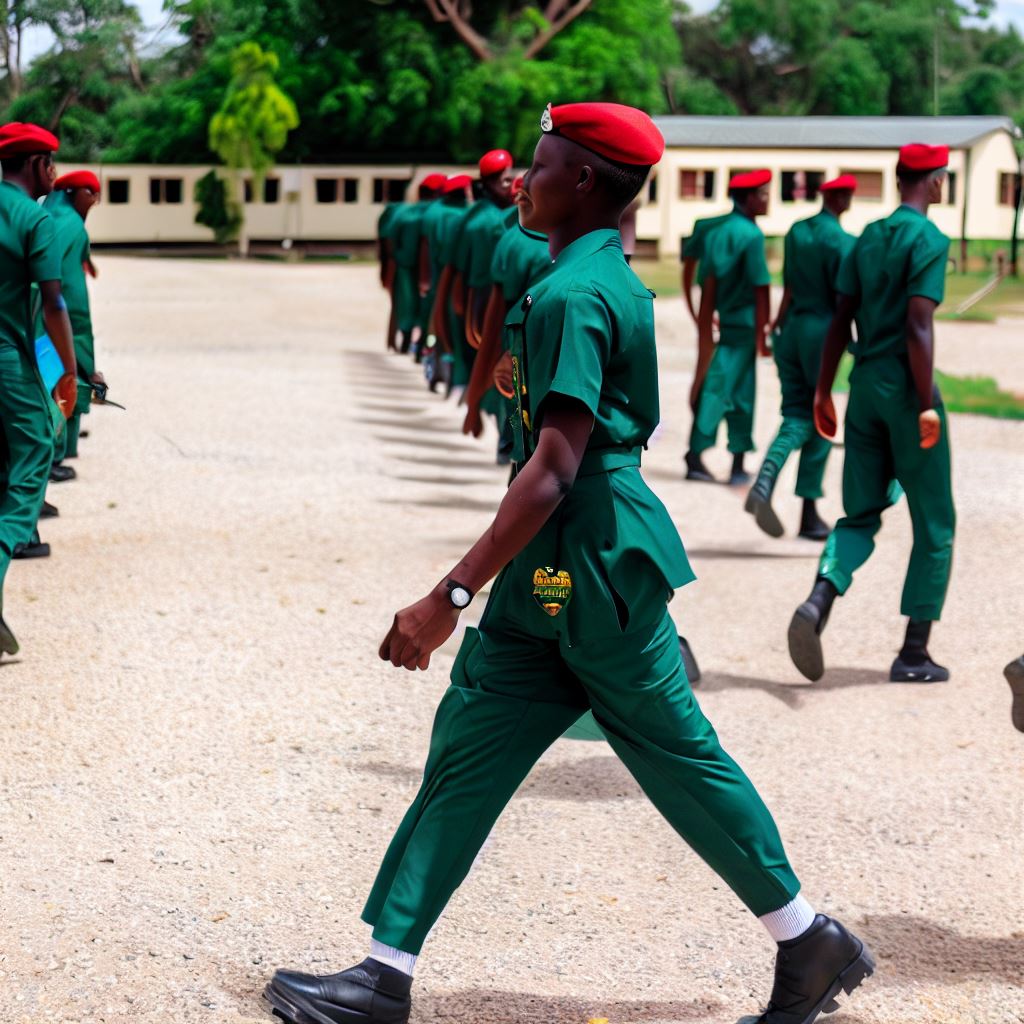
Academic Programs
Academic Programs at Nigeria Military Academies provide cadets with a comprehensive education in various military disciplines.
Cadets can choose their areas of study based on their interests and the needs of the military.
The mandatory courses form the foundation of the education, covering subjects such as military history, weapons training, leadership development, and physical fitness.
These courses aim to equip cadets with the necessary knowledge and skills required for a successful military career.
Mandatory Courses
In addition to the mandatory courses, Nigeria Military Academies offer a range of elective courses. These courses allow cadets to specialize in specific areas of interest within the military.
Examples of elective courses include counter-terrorism, cyber warfare, international relations, and strategic planning.
This flexibility in course selection allows cadets to tailor their education according to their career goals and interests.
Elective Courses
Upon completion of their training, cadets are awarded degrees in various military-related disciplines. The specific degree awarded depends on the cadet’s chosen area of study.
For example, a cadet studying infantry will receive a Bachelor of Science in Infantry.
This degree serves as a recognition of the cadet’s successful completion of the academic program and their readiness for military service.
Degree Options
The academic programs at Nigeria Military Academies play a crucial role in shaping cadets into skilled and knowledgeable military personnel.
The combination of mandatory and elective courses provides a well-rounded education that covers both foundational and specialized subjects.
This comprehensive approach ensures that cadets are prepared to face the challenges of their future military roles.
The academic programs at Nigeria Military Academies offer a diverse range of study areas, mandatory and elective courses, and degree options.
These programs aim to provide cadets with a comprehensive military education that prepares them for their future roles.
Nigeria Military Academies actively equip cadets with practical skills, fostering honor and commitment for dedicated service to their country.
Life at the Academies
Training at Nigeria’s military academies is an intense and demanding experience for cadets.
Daily Routine
- Cadets have a strict daily schedule that begins early in the morning.
- They start their day with physical training, which includes exercises and drills.
- Afterwards, they have breakfast and attend academic classes on various subjects.
- Throughout the day, cadets participate in practical training sessions to develop military skills.
- Evenings are dedicated to studying, preparing for exams, and completing assignments.
Military Discipline and Hierarchy
- Military academies emphasize discipline, obedience, and respect for authority.
- Cadets are expected to follow instructions promptly and maintain a high level of discipline.
- There is a strict hierarchy within the academies, with senior officers overseeing junior cadets.
- Cadets learn to adapt to military protocols and understand the importance of chain of command.
Social Activities and Camaraderie
- Cadets at the academies form strong bonds of camaraderie and develop lasting friendships.
- They participate in team-building activities, sports competitions, and recreational events.
- These activities help foster a sense of unity and solidarity among the cadets.
- Through social interactions, they learn to work together and support each other.
Support Systems for Cadets
- Military academies offer various support systems to ensure the well-being of cadets.
- Dedicated mentors and instructors actively guide and mentor cadets throughout their training.
- Counseling services are available to help cadets cope with the challenges they may face.
- Healthcare facilities are provided to address the physical and mental well-being of the cadets.
Life at Nigeria’s military academies revolves around a structured routine, discipline, camaraderie, and support.
The daily schedule is filled with physical training, academics, and practical military exercises.
Cadets learn the importance of military discipline, respect for authority, and chain of command.
They actively participate in social activities, fostering strong bonds and promoting teamwork among themselves.
The academies ensure cadets’ overall well-being through active support systems.
Training at these academies prepares young men and women for a future in the Nigerian military, equipping them with the necessary skills and values to serve their country with pride and honor.
Challenges and Benefits
Challenges faced during training
- Mental and physical demands push trainees to their limits.
- Rigorous physical training sessions test endurance, strength, and resilience.
- Trainees face intense mental pressure to make split-second decisions in high-stress situations.
- Strict disciplinary measures and long hours of training can be mentally and emotionally draining.
- Surviving the tough selection process itself is a significant challenge.
Mental and physical demands
- Trainees engage in physically demanding activities like obstacle courses, combat drills, and stamina tests.
- They undergo rigorous mental training to develop strategic thinking, problem-solving, and decision-making skills.
- Endurance training helps build resilience to tackle challenging military operations.
- Trainees also learn to cope with sleep deprivation and harsh environmental conditions.
- The training instills mental toughness and prepares them for the realities of service.
Benefits of training at Nigeria Military Academies
- Comprehensive training equips individuals with a wide range of military skills.
- Fosters a strong sense of camaraderie and instills discipline and teamwork.
- Leadership qualities are developed through practical exercises and command responsibilities.
- The academies prioritize education, ensuring trainees gain theoretical knowledge alongside practical training.
- Training focuses on character development, emphasizing integrity, loyalty, and service to the nation.
Career opportunities after graduation
- Graduates have a wide range of options, including joining the Army, Navy, Air Force, or other specialized units.
- They can pursue careers in fields like engineering, intelligence, logistics, administration, or special operations.
- Individuals who excel can rise through the ranks and have opportunities for higher leadership positions.
- The military offers professional growth, enhances education, and provides specialized training opportunities for individuals.
- Graduates also contribute to national security and play a crucial role in peacekeeping missions.
Training at Nigeria Military Academies offers both challenges and numerous benefits. Trainees face mental and physical demands that push them to their limits.
The rigorous training helps develop their resilience, endurance, and strategic thinking abilities. While the challenges may be tough, the benefits are significant.
The academies provide a comprehensive training experience that equips individuals with a wide range of military skills and fosters discipline, teamwork, and leadership qualities.
Graduates have various career opportunities, including joining different branches of the military and pursuing specialized fields.
The military also offers avenues for professional development and further education. Ultimately, graduates play a crucial role in ensuring national security and contribute to peacekeeping efforts.
Tips for Success
Training at Nigeria Military Academies is a rigorous and demanding process that requires mental and physical preparation. Here are some tips to help you succeed:
- Mental and physical preparation: Before entering the academy, it is essential to be mentally and physically fit. Engage in regular exercise and develop a strong mindset to overcome challenges.
- Time management: Military training is highly structured and time-sensitive. Learn to manage your time efficiently and prioritize tasks to meet deadlines.
- Discipline and dedication: Military training demands discipline and dedication. Always follow instructions, regulations, and code of conduct, and give your best effort in everything you do.
- Seeking mentorship and guidance: Connect with experienced military personnel or alumni who can guide you through the training process. They can provide valuable insights and support.
Follow these tips to boost your success chances in Nigeria Military Academies through active training. Stay committed, focused, and determined to achieve your goals.
Conclusion
In this post, we have discussed the training at Nigeria Military Academies and its significance. We explored the rigorous nature of the training, the various disciplines taught, and the values instilled in cadets.
Publish Your Professional Profile, Business or Brand
Showcase your expertise, gain trust, and boost visibility instantly on Professions.ng.
Publish NowIt is evident that military training in Nigeria is comprehensive and aimed at producing well-rounded officers.
Recap of main points discussed
- Nigeria Military Academies provide rigorous training to cadets in various disciplines.
- The training emphasizes discipline, leadership, physical fitness, and academic excellence.
- Cadets undergo a demanding and structured program that prepares them for a career in the military.
Encouragement for those considering military training at Nigeria Military Academies
For those considering military training at Nigeria Military Academies, it is crucial to understand the commitment and sacrifice required.
This training fosters personal growth, develops leadership skills, and enables individuals to serve and protect their country.
Final thoughts and call-to-action
Training at Nigeria Military Academies is not for the faint-hearted. It requires dedication, discipline, and hard work. However, for those who are willing to make the commitment, the rewards are immense.
If you have the passion and determination to serve your country and make a difference, consider pursuing military training at Nigeria Military Academies.
Take the first step towards an impactful and fulfilling career in the Nigerian military.

